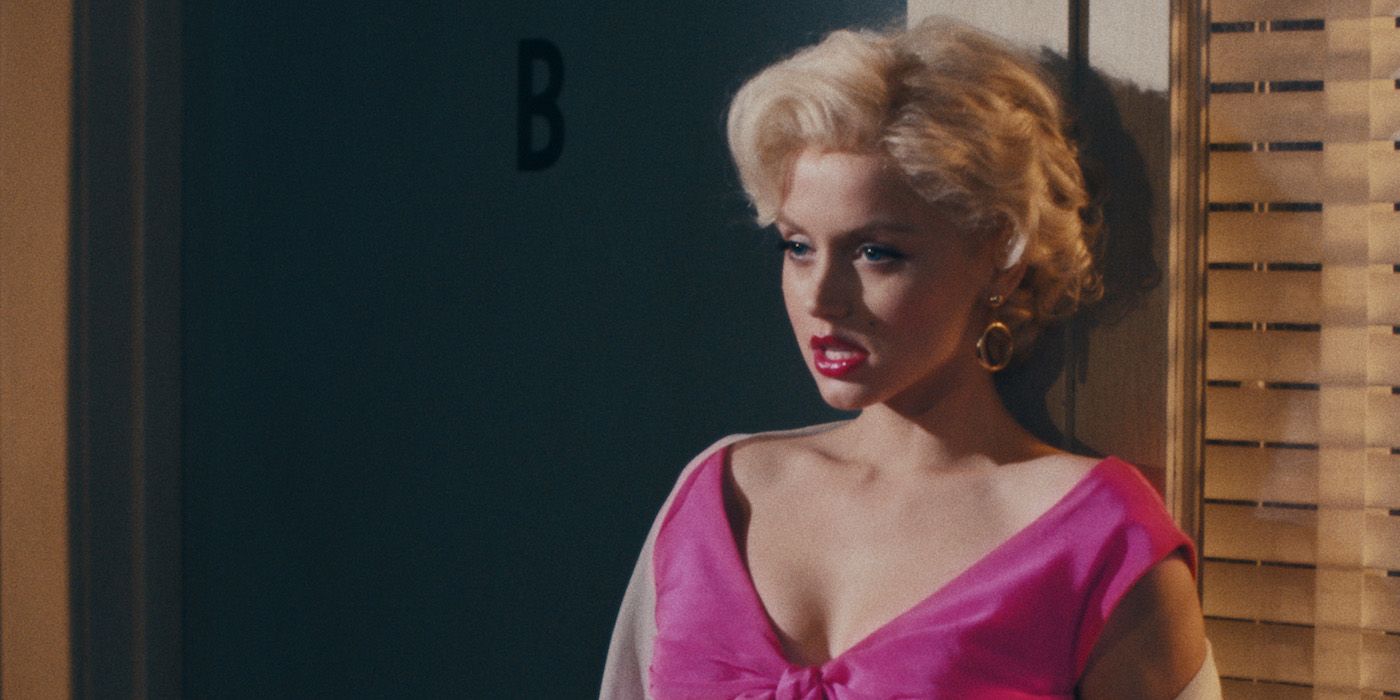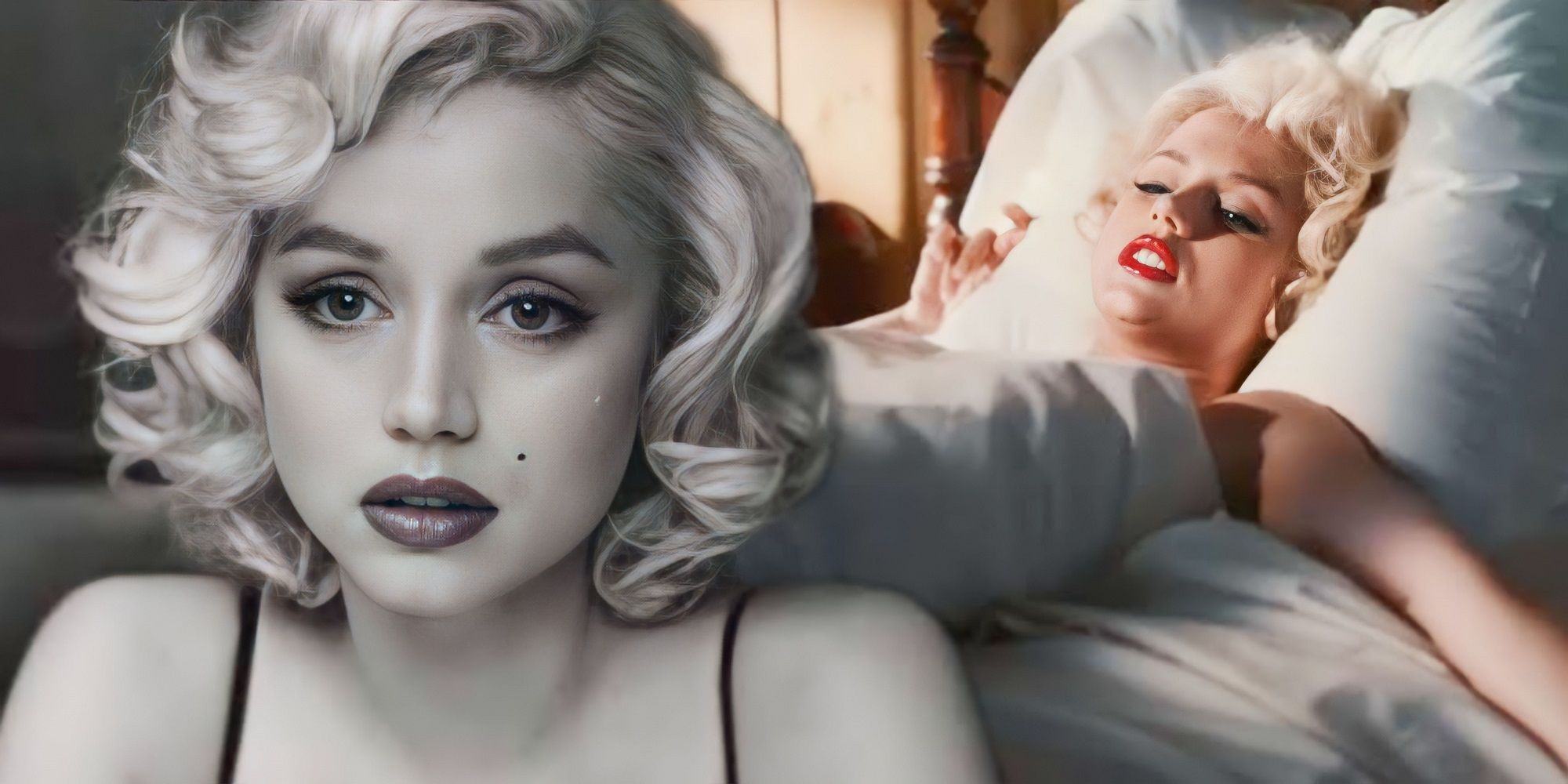Blonde director Andrew Dominik offers a reply to the backlash garnered by the Marilyn Monroe film. Rather than being another biopic about the life of icon Marilyn Monroe (also known as Norma Jeane Mortensen), Blonde is based on the Joyce Carol Oates novel of the same name, which presents a fictionalized take on Monroe's story. Before its release, Blonde was already courting controversy due to its NC-17 rating and the accent of star Ana de Armas, which some felt didn't match Monroe's. Once it debuted on Netflix, Blonde became the subject of criticism by many, with critics taking issue with the film's long runtime, indulgent and exploitative portrait of Monroe, and hollow repetitive nature.
During a conversation with The Hollywood Reporter, Dominik opened up about the backlash the film has garnered since its release, stating that it is impossible for his film to exploit Monroe "because she's dead." The director expressed feeling "really pleased” that Blonde “outraged so many people" because he believes that American movies are getting “more conservative,” comparing them to bedtime stories. Dominik went on to say "I don’t want to make bedtime stories" by way of explaining his vision for the controversial movie. See what the director had to say about the subject below:
"Now we’re living in a time where it’s important to present women as empowered, and they want to reinvent Marilyn Monroe as an empowered woman. That’s what they want to see. And if you’re not showing them that, it upsets them...Which is kind of strange, because she’s dead. The movie doesn’t make any difference in one way or another. What they really mean is that the film exploited their memory of her, their image of her, which is fair enough. But that’s the whole idea of the movie. It’s trying to take the iconography of her life and put it into service of something else, it’s trying to take things that you’re familiar with, and turning the meaning inside out. But that’s what they don’t want to see.”
Why Dominik's Response Misses The Point of Blonde's Critics
Dominik's implication that Monroe was not an "empowered woman," as well as his callousness when speaking about utilizing the "iconography" of a celebrity who has passed away in order to achieve a particular artistic vision, prove that the director doesn't truly understand the root of the backlash to Blonde, or that he perhaps doesn't care. While the liberties that Blonde took with reality were due to the film adapting the fictionalized novel rather than standing as a biopic, the movie's simplification of Monroe from the novel into a hollow and one-dimensional vehicle for a message is worth critiquing. Dominik's dismissal of those valid criticisms displays that he, like Blonde itself, is more interested in the idea of Monroe than engaging with her humanity.
Not every aspect of Blonde was divisive, with de Armas' portrayal of the starlet becoming one of the most-praised aspects of the movie. Reviewers pointed to de Armas' ability to hone in on Monroe's emotional truth and bring life and empathy to the many hollow moments and situations that Monroe is forced into over the course of the film. In de Armas' previous comments about Blonde, she expressed disgust over the idea of her nude scenes in the movie going viral, signaling her desire to preserve Monroe's memory rather than reducing her to an idea.
To Dominik's credit, the acclaimed and progressive author of Blonde offered high praise to the film adaptation, calling it "a brilliant work of cinematic art." In addition, controversy is not an inherent signal that a work is problematic, and is often, as Dominik points out, a sign that art is having the intended effect and being spoken about. However, intent is everything, especially when it comes to mining the story of a real person, living or dead, for one's own gain, and Dominik's response to the backlash Blonde generated indicates that he's unwilling to engage with the critiques on a meaningful level.
Source: THR


